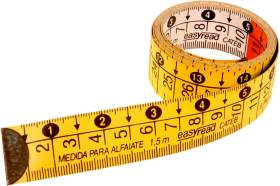Academic Reading 23 - Passage 1
Chinese Stretch to Catch up with Teenage Model

THE young in China are going to desperate lengths to add extra inches to their height in pursuit of celebrity and wealth. They are being urged on by a government shamed by the news that, for the first time in history, the Japanese now stand taller than the Chinese. There is constant pressure on Chinese adolescents to think tall. The government is encouraging them to drink milk as a way of promoting growth, while magazines and television are replete with the images of lanky supermodels and basketball stars.
One of the greatest influences has been the astonishing success of Huang Xinye, a 14-year-old schoolgirl from a fishing village in southern China. She was whisked away by talent scouts for a modelling contest late last year. Until then, her 6ft 1in frame had marked her out as a gawky also-ran in the school playground. Having won the contest, Huang was spotted by the international modelling agency Elite and flown to Europe. The news of her glamorous new life and the £12,000 that she won in the modelling contest has inspired thousands to attempt to follow in her footsteps - even if they don't have her natural advantages.
Teenagers are inundating hospitals that claim to be able to enhance their height with requests for leg-lengthening operations. Xia Hetao, a doctor whose clinics perform the operation said: "I have received many letters from people saying that, because they were born short, they have suffered and are looking for some solace."
If they are accepted on Xia's waiting list, the aspiring patients are guaranteed only more pain in the short run. Xia slices the thigh bone in half and inserts a steel rod supported by a metal frame on the outside of the bone. The patient cranks the mechanism wider every day, forcing the leg to grow longer. Most can stand the pain only for the month that it takes to stretch an inch, but others persist. The record is held by a young man who gained 6.5 inches. Last year, The Telegraph highlighted the case of the British girl, Emma Richards, 16, from Wadebridge, Cornwall, who underwent a series of leg-lengthening operations to gain an extra five inches so that she could become an air stewardess.
Even in successful cases in China, the lengthening and attendant physiotherapy and rehabilitation lasts months. Frequently, however, the result is disastrous - the bone never sets properly, but constantly breaks, eventually turning the patient into an invalid.
Those who either cannot afford the equivalent of the £2,000 that the doctor charges or are unwilling to suffer the pain that it entails can take advantage of scores of products that claim to boost growth - ranging from the absurd to the downright dangerous. In department stores throughout the country, salesmen entice shoppers to try the Wanlijian shoe pad, a magnetic insole that claims to stimulate pressure points in the foot, triggering the release of a natural growth hormone.
White-coated salesmen on the same shopping floors tout a vast array of lotions and pills for enhancing growth, such as "Increasing Brains and Stature" tablets, which contain a double boost for the anxious consumer. Manufacturers of such products claim that sales are booming, thanks in large part to the emergence of towering young role models such as Huang Xinye.
Zhang Mei is one of the many who want to look like Huang. She says cosmetic surgery will create undreamt-of opportunities for her. She and her friends swap tales of operations to lengthen their legs, enlarge their breasts, reduce their thighs, straighten their noses and tuck their eyelids. She said: "A nice body is the passport through the door leading to our dream life."
Teenage boys have their own giant heroes, in the form of a trio of basketball players known as the "Walking Great Wall". The average height of Yao Ming, Wang Zhizhi and Menk Bateer is 7 ft 6 in. At last year's Olympic Games, they towered over rivals from Scandinavia and confidently looked the American Dream Team straight in the eye. Since then, China's growing legion of basketball fans has been proudly confident that a Chinese player will one day establish the country as a great force in the sport.
For centuries, the Chinese have derisively referred to the Japanese as "dwarfs", which is why the news that the average Chinese person is now smaller than his Japanese counterpart caused such official consternation. The explanation is undoubtedly the better nutrition enjoyed by recent generations of Japanese, which is why Beijing has made it compulsory for every schoolchild from nursery school upwards to drink a quarter-pint of milk every day. Officials believe that the reason for China's physical shortfall is the fact that Japanese children drink 18 times as much milk a year as Chinese infants. However, the order to drink milk is not popular with children, most of whom (as with the majority of Chinese) are lactose-intolerant and, therefore, have difficulty digesting the natural sugars in milk. It has been accepted by all, however, as a necessary evil if modern Chinese people are to achieve the greater goal of a taller nation.
Height and beauty, though, are not always enough, as Huang Xinye is discovering. "When I have enough money, I will buy a place in Beijing for my family," she said as she boarded a plane for Geneva late last year. Sadly, her parents are still in their fishing village as Huang is struggling to make her name on the international modelling circuit.
By DAMIEN MCELROY, The Daily Telegraph | April 10, 2001